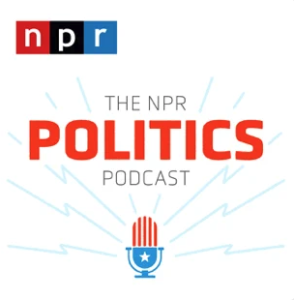Last week, Congress passed the $1.9 trillion COVID-19 Relief bill, and President Biden signed it into law as the American Rescue Plan on Thursday, March 11.
About 70% of adult Americans supported the passage of the American Rescue Plan, which includes tax benefits for families with children and direct relief payments to families, as well as extending unemployment benefits which were scheduled to lapse in March. Proponents of the bill claim that its provisions will cut child hunger and family food insecurity in half. Direct payments to Americans will provide those in need with immediate financial support and the means to return to work.
The component of the bill providing ongoing benefits for families with children has led to increased debate around the concept of Universal Basic Income (UBI), a program in which everyone in a society or geographic area receives a set amount of money on a regular basis with the goal of alleviating poverty and replacing other needs-based social programs that potentially require greater bureaucratic involvement. As Congress was debating the Relief Bill, data was released on a UBI program founded in 2019 in Stockton, California which gave 125 residents living below the median household income an unconditional monthly stipend. The study determined that full-time employment rose among those who received the guaranteed income and that their financial, physical, and emotional health improved.
This week’s current events resources dive into The American Rescue Plan and UBI. Consider using the materials to help your students compare the two different economic approaches. You can also use our Structured Academic Controversy strategy to have your students discuss how best to solve the economic impact of COVID, and/or how to reduce the wealth gap in the United States.
Essential Questions:
- What is Universal Basic Income (UBI) and how has it been implemented in parts of the United States and around the world?
- Where has UBI been most successfully implemented, and what are the reasons for that success?
- What are some of the major elements that make up the $1.9 trillion American Rescue Plan? What components within it are related to the concept of UBI?
- Why do some economists believe that UBI is a better economic solution than current legislation for supporting families living in poverty?
Videos:
Podcasts:
COVID Relief Spending Dwarfs All Precedents
Recent Articles:
- Here’s What’s In The American Rescue Plan, NPR/OPB, March 11, 2021
- Might the pandemic pave the way for a universal basic income? The Economist, March 6, 2021
- Employment rose among those in free money experiment, PBS Newshour, March 3, 2021
- Guaranteed Minimum Income: What Is It and How Is It Different From Universal Basic Income? Teen Vogue, Feb. 16, 2021
- In Pandemic Downturn, Canada’s Drive For Guaranteed Basic Income Picks Up Speed, KPBS, October 15, 2020
Articles for Younger Readers:
- Does Unconditional Basic Income Create A More Productive Society? Some Dutch Cities Are About To Find Out, DOGOnews, Aug. 16, 2015
- The U.S. government’s role in regulating the economy has grown over time, Newsela, Sept. 9, 2019
Recent Editorials:
- Joe Biden’s stimulus is a high-stakes gamble for America and the world, The Economist, March 13, 2021
- What even a modest guaranteed income might have done for my mom, The Los Angeles Times, March 9, 2021
-
Overstuffed $1.9 trillion COVID relief bill endangers future growth and prosperity: Kasich, USA Today, Feb. 26, 2021
- ‘Bringing Back Welfare as We Knew it,’ or ‘Pro-Family’, National Review, March 5, 2021
Resources for using Political Cartoons in the Classroom:
- Cartoons for the Classroom– Understanding Political Cartoons
- How To Analyze a Political Cartoon
- Political Cartoon Analysis
Lesson Plans:
- Daily News Lesson: Senate Passes $1.9 Trillion Relief Bill, PBS Newshour
- Stimulus Checks in the Covid Relief Bill, C-Span
Lesson Plans regarding Media & News Literacy (general):
Media Literacy Resources – Newseum
News & Media Literacy Lessons – Common Sense
Media Misinformation, Viral Deception, and «Fake News» – University of Wyoming
Evaluating Sources in a ‘Post-Truth’ World: Ideas for Teaching and Learning About Fake News – New York Times Lessons

